Calendar of events, awards and opportunities
Every week, we update this list with new meetings, awards, scholarships and events to help you advance your career. If you’d like us to feature something that you’re offering to the bioscience community, email us with the subject line “For calendar.” ASBMB members’ offerings take priority, and we do not promote products/services. Learn how to advertise in ASBMB Today.
Watch today: Health film festival winners
On Thursday, the World Health Organization announced the winners of its 2021 Health for All Film Festival. You can watch the official selections here. There are three main categories (universal health coverage, health emergencies and better health and well-being) and a special prize category (health equity).

May 18 & 25: Protonic bioenergetics and action potential
It's not too late to enjoy this ASBMB series about the latest discoveries and progress in mitochondria, neurons and other biosystems. It started on May 11, but you can register for the next two installments. The series is being organized by James W. Lee at Old Dominion University. Learn more.
May 19: Panel discussion on how to be a good mentor
The American Society for Cell Biology is hosting a webinar for mentors at all career stages. There will be a panel discussion "mainly guided by audience participation," so you are encouraged to come with questions. The panelists will be Elise M. Lewis of Charles River Laboratories, Meng-meng Fu of the National Institutes of Health and Prachee Avasthi of the Geisel School of Medicine at Dartmouth. Register.

May 24: New deadline for ASBMB award nominations
The ASBMB Annual Awards are given to outstanding professionals who have been recognized by their peers for contributions to their fields, education and diversity. The recipients will give talks about their work at the 2022 ASBMB Annual Meeting. You can nominate or self-nominate. See a list of available awards and prepare your nomination package.
May 26: Talk about RNA-guided DNA insertion with CAST
Feng Zhang of the Howard Hughes Medical Institute and the Massachusetts Institute of Technology will present the Genetics Society of America's 2021 Novitski Prize Seminar. Here's how it's described: "Over the past few years, there has been a growing appreciation for the natural diversity of CRISPR–Cas systems, adaptive immune systems microbes use to defend against invading foreign genetic elements. Components of CRISPR–Cas systems have also been found to be associated with transposable elements, creating programmable jumping genes. We have been working to characterize CRISPR-associated transposon (CAST) systems and understand the mechanism of these fascinating molecular machines. Learn more.
May 27: Application deadline for DOE internships
The U.S. Department of Energy is accepting applications through May 27 for the fall cohort of its Science Undergraduate Laboratory Internships Program. This program allows undergraduates and recent grads to conduct mentored research in DOE labs across the nation. Learn more.
May 31: Application deadline for IUBMB editorship
The International Union of Biochemistry and Molecular Biology is seeking a new editor for its journal Biotechnology and Applied Biochemistry. The editor has a three-year term. Applications are due May 31. See the job description and application instructions.
June 7: Insomnia biomarkers awards for junior researchers
The American Academy of Sleep Medicine Foundation has established a new award program for junior researchers. The Focused Projects Award for Junior Investigators is for scientists pursuing basic, translational, clinical or population sleep and circadian science. The work should be related to the identification, evaluation or validation of insomnia biomarkers. The $50,000 award provides seed funding for mentored research projects. We're told the AASM Foundation hopes to issue three awards. The deadline is June 7. Learn more.

June 16: Metabolic reconstruction, modeling and omics data analysis through BioCyc
The first part of this free bioinformatics workshop will provide a tutorial for using the BioCyc pathway/genome web portal and Pathway Tools software developed by the Bioinformatics Research Group at SRI International. In the second part of the workshop, Jeremy Zucker of the Pacific Northwest National Lab will give a talk about Pathway Tools-based metabolic reconstructions. It is titled “AI-assisted metabolic and regulatory investigations of the circadian clock in the filamentous fungus Neurospora crassa.” Learn more.

June 20–25: Teaching science with big data
This international meeting guides faculty on how to teach using web-based, free-access large data sets. How big is "big data"? Data that is so large, fast or complex that it's difficult or impossible to process using traditional methods. Join us to learn these valuable teaching skills to prepare students for the future. Sponsored by the ASBMB and the International Union of Biochemistry and Molecular Biology. Registration and abstract information.

June 21: Flux-independent signaling by ionotropic receptors
Save the date for the virtual event "Flux-independent signaling by ionotropic receptors: Unforeseen roles and complexities" on June 21. The organizers say it will be of interest to neuroscientists, cell biologists, molecular biologists and biochemists, among others, involved in the study of cell physiology and function in health and disease. Read the event description and register.
July 20–21: Green Labs Digital Summit
Lab Manager is hosting a free two-day event about sustainable labs. If you're interested in greening your lab (reducing energy consumption and waste and optimizing processes), save the dates for presentations on such things as metrics for sustainability, net zero labs and long-term savings strategies. Learn more.

July 21–23: Extracellular vesicle studies: From benchtop to therapeutics
Extracellular vesicles are secreted, membrane-bound compartments containing DNA and cytoplasmic constituent molecules of all types that are thought to act as mediators of intercellular communication. They are classified by both size and location/mechanism of cellular origination. They are thought to be produced by an ever-expanding diversity of cell types and species. However, there is also considerable skepticism related to their existence and utility, as it can be difficult to isolate EVs since there is no EV-specific molecular marker to target. (Editor's note: See this ASBMB Today feature on EVs by former science writer Rajendrani Mukhopadhyay.)
A primary focus in recent years has been to describe the mechanisms of molecular sorting that would allow researchers to target proteins produced from exogenously introduced DNA to EVs for cellular secretion and uptake. The potential value of EVs to therapeutics is thought to be enormous, thanks to the role of EVs in cell–cell communication as a robust, native delivery vehicle.
This event will appeal to a broad audience, including molecular biologists, biochemists, biophysicists, secretion experts, cell–cell communication specialists, clinicians, physiologists and others. Submit an abstract by May 27. The early registration deadline is June 25, and the regular registration deadline is July 16. Visit the event homepage.
July 30: Deadline to apply for PALM fellowship
The Promoting Active Learning and Mentoring (PALM) Network is accepting applications from postdocs and faculty members who wish to learn about and get better at implementing evidence-based active learning. This program is supported by the National Science Foundation. During the COVID-19 pandemic, fellows and mentors will participate virtually. Learn more.
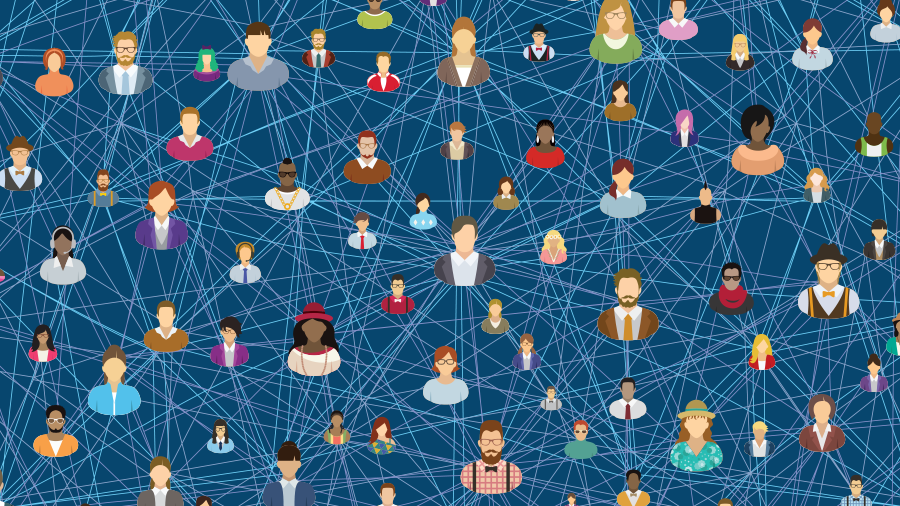
Call for virtual scientific event proposals
The ASBMB provides members with a virtual platform to share scientific research and accomplishments and to discuss emerging topics and technologies with the BMB community.
The ASBMB will manage the technical aspects, market the event to tens of thousands of contacts and present the digital event live to a remote audience. Additional tools such as polling, Q&A, breakout rooms and post event Twitter chats may be used to facilitate maximum engagement.
Seminars are typically one to two hours long. A workshop or conference might be longer and even span several days.
Prospective organizers may submit proposals at any time. Decisions are usually made within four to six weeks.
Oct. 30: Deadline to apply for PALM fellowship
The Promoting Active Learning and Mentoring (PALM) Network is accepting applications from postdocs and faculty members who wish to learn about and get better at implementing evidence-based active learning. This program is supported by the National Science Foundation. During the COVID-19 pandemic, fellows and mentors will participate virtually. Learn more.
Enjoy reading ASBMB Today?
Become a member to receive the print edition four times a year and the digital edition monthly.
Learn moreFeatured jobs
from the ASBMB career center
Get the latest from ASBMB Today
Enter your email address, and we’ll send you a weekly email with recent articles, interviews and more.
Latest in Careers
Careers highlights or most popular articles
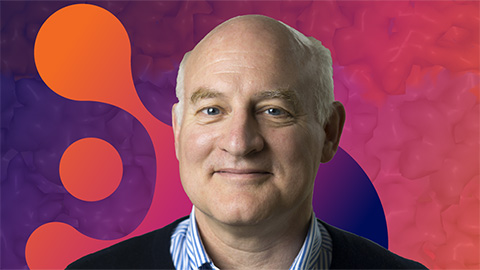
Building the blueprint to block HIV
Wesley Sundquist will present his work on the HIV capsid and revolutionary drug, Lenacapavir, at the ASBMB Annual Meeting, March 7–10, in Maryland.
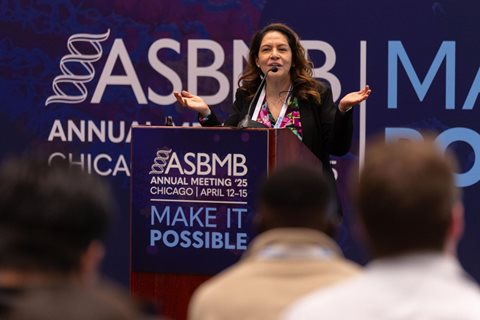
Upcoming opportunities
Present your research alongside other outstanding scientists. The #ASBMB26 late-breaking abstract deadline is Jan. 15.
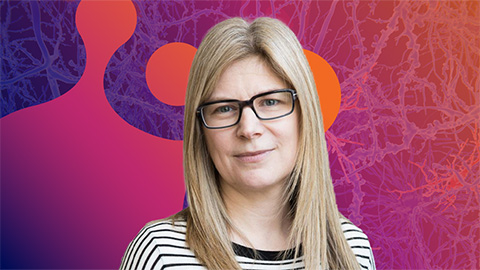
Designing life’s building blocks with AI
Tanja Kortemme, a professor at the University of California, San Francisco, will discuss her research using computational biology to engineer proteins at the 2026 ASBMB Annual Meeting.

Upcoming opportunities
#ASBMB26 late-breaking abstract submission opens on December 8. Register by Jan. 15 to get the early rate on our Annual Meeting.

Make your abstract stand out
Ensure your research is impossible to overlook. Get quick, practical reminders for crafting an abstract that attracts readers and helps you build connections at the conference.
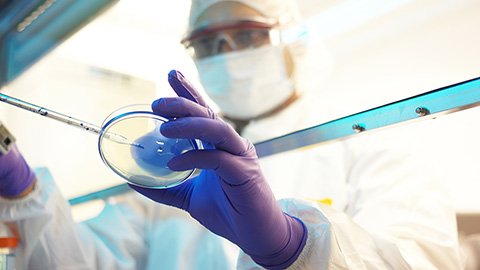
Inside industry postdocs
As more Ph.D. scientists look beyond academia, industry postdocs offer a new kind of training, where mentorship meets mission-driven research. Fellows at Pfizer and Genentech share how these programs prepare them to translate discovery into impact.
